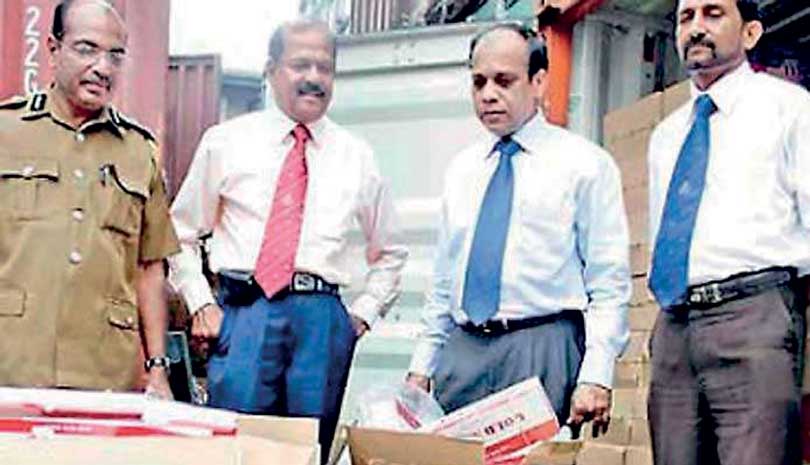Monday Feb 16, 2026
Monday Feb 16, 2026
Tuesday, 4 June 2024 00:00 - - {{hitsCtrl.values.hits}}

Authorities and lobbyists continue to focus solely on the legitimate cigarette market, completely overlooking the illicit segment
By Kumar Ranaweera
World No Tobacco Day was celebrated in many parts of the world over the weekend, and despite some lip service to the cause here in Sri Lanka, the actualities have it all up in smoke. On paper, the country espouses to have its tobacco control policy right, but it is its practice that ultimately determines success and here it has failed.
A summary overview of Sri Lanka’s anti-tobacco policy showcases some of the world’s most restrictive pricing with public place smoking prohibited on top of graphic health warnings, promotions outlawed and a ban on sale of cigarettes to anyone under 21 years. The strategy has worked in principle, as cigarette production has dropped well below three billion sticks annually. But therein sits the very crux of the problem, as authorities and lobbyists continue to focus solely on the legitimate cigarette market, completely overlooking the illicit segment which is potentially much bigger and more dangerous.
In its latest development, court banned the sale of the popular ‘Switch’ cigarette, and the regulated local cigarette manufacturer promptly pulled the product off shelves. But smuggled foreign ‘Switch’ is available everywhere, and it’s cheaper. Before it was withdrawn from shelves, a single stick of ‘Switch’ retailed at the Government regulated price of Rs. 165 a stick. Now, smuggled ‘Double Switch’ could be bought at Maharagama for just Rs. 100 a stick, and Rs. 130 in Colombo 3. The grounds of the famed Welipenna rest stop on the Southern Expressway is littered with smuggled ‘Switch’ cigarettes. The policy has become impotent in practice.
Simply put; the Government is losing money. On one hand, it is losing revenue from diminishing sales of legitimate products. These have been replaced by cheap illicits due to restrictive pricing policy. On the other, the Government’s health bill is going up, as Sri Lankans continue to smoke; but smoke unregulated smuggled hazardous product that yield no revenue, but pose greater harm to public health. Evidently, the State is at the receiving end of some very bad advice, and ultimately it is the public that must pay.
The theme of this year’s World No Tobacco Day is protecting children from tobacco industry interference. However, in Sri Lanka it is pertinent to say the theme should centre on how to protect the public and children from regressive policy. This country’s tobacco control policy is fuelling the growth of smuggling and is breathing life into a rampant underground industry that is already taking control. Illicit cigarettes are removed from the standard regulations that bind legitimate products, and this is where Government needs to be cautious with respect to underaged smoking. These products are cheaper and accessible with ease.
Sri Lanka’s tobacco control policy is a farce. It is a mere showpiece to the world, but a failed experiment. The regulator, supported by its vested funders, keep churning out proposals for the purpose of validating its existence. Last week’s letter to disrupt the tourism industry shows it is a disjointed institution with no sense of reality. Sri Lanka cannot prosper in such light. Any policy framework must be grounded and applicable, and resonate with the will of the people. Regulators keep bandying that cigarette production has dropped because of policy, but continue to ignore blatant fact that cheap smuggled cigarettes have taken over the market. Such accomplishments are hollow to say the least.
It is commonplace that no government in the current milieu has the strength or resolve to reverse some of its wrong policy choices relating to tobacco and alcohol, but it is imperative to take action to stem the rot. Greater enforcement and border control is critical whilst ensuring the present policy platform does not degenerate further. For instance, there is a lot of media hype on the growth of banned e-cigarettes, but they continue to flood the market. These are marketed by smugglers, but what real action has anyone taken in this regard. Not too long ago, a schoolboy was caught selling a ‘puff’ of vape for Rs. 20. That serves ample proof of the more real problems, but the regulator has other things to do.
(The writer is a Research Associate attached to a leading Auditor in Colombo specialising in consumer behaviour, product and trade policy.)